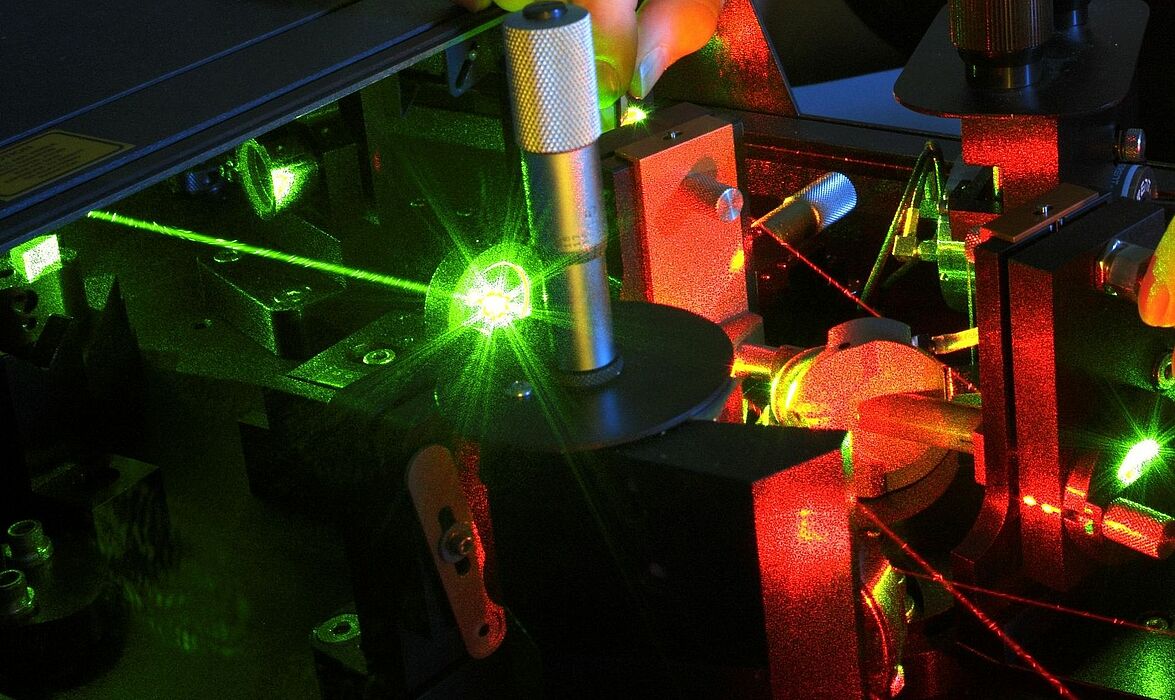Once again this year, a Nobel Prize in Physics was awarded to scientists who dedicate their research to the subject of light. The prize recognizes the progress made in the field of laser research and the practical application of laser light as a groundbreaking achievement for our society.
On December 10, the day the Nobel Prizes are awarded in Stockholm, two scientists from the Faculties of Natural Sciences and Mechanical Engineering of the University of Paderborn, Prof. Dr. Thomas Zentgraf (Center for Optoelectronics and Photonics Paderborn, CeOPP) and Prof. Dr.-Ing.Hans-Joachim Schmid (Direct Manufacturing Research Center, DMRC) will explain the significance of the research results of this year's three Nobel Prize winners and show how laser light has found its way into applications of our daily lives. Many know lasers from science fiction and action films, where they create spectacular effects.
"Although it is not yet possible to build a laser sword like in the Star Wars films, lasers make many tasks easier for us today, especially in material processing and measurement technology", explains Prof. Zentgraf.
The interested public will be presented with information about the prize winners, the physical basis of the inventions and their significance for our society.
The evening lecture will take place on Dec 10, 6 p.m. in the lecture hall L2 on the campus of the University of Paderborn. Flyer
Half of the 2018 Nobel Prize in Physics was awarded to the physicist Arthur Ashkin "for the development of optical tweezers and their application in biology" and the other half was awarded jointly to Gérard Mourou and Donna Strickland "for the development of a method with which high-energy, ultra-short optical pulses can be generated".
Prof. Dr. Thomas Zentgraf is head of the working group "Ultrafast Nanophotonics" at the Department of Physics. Prof. Dr.-Ing. Hans-Joachim Schmid is head of the "Chair of Particle Process Engineering" at the Faculty of Mechanical Engineering.

